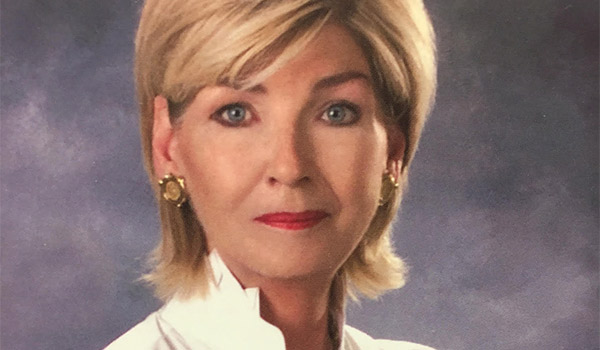Going Into Combat Alongside Kate O’Beirne

 Kate O’Beirne, who I was honored to know as a dear friend, succumbed to cancer on April 23, in the presence of her loving family. Kate was a principled conservative woman with a brilliant mind and quick wit, who kept her friends laughing and her adversaries wondering what happened.
Kate O’Beirne, who I was honored to know as a dear friend, succumbed to cancer on April 23, in the presence of her loving family. Kate was a principled conservative woman with a brilliant mind and quick wit, who kept her friends laughing and her adversaries wondering what happened.
She thoroughly enjoyed challenging liberals who, as her book title stated, “Make the World Worse.” No matter what the issue was, Kate always was prepared to make her case succinctly, with facts and logic, often highlighted with disarming humor.
In 1992 President George H. W. Bush appointed Kate and me to serve on the Presidential Commission on the Assignment of Woman in the Armed Forces. Following the deployment of unprecedented numbers of military women in the 1991 Persian Gulf War, Congress established the 15-member commission to study and make recommendations on a wide range of issues, particularly prospects for women in direct combat. Most of the issues we researched and debated then remain complex and consequential today.
There are no guidebooks on how to survive and prevail on a politically-divided presidential commission. It was a daunting task, but Kate O’Beirne – a visionary with more courage than a three-star general – devised wise strategies.
The commission conducted scores of field trip visits to military bases all over the country. There were public hearing sessions and focus group interviews with people of all ranks and occupations, plus expert witnesses on topics ranging from physiology to religious beliefs and cultural values. Defense Department reports that commissioners requested revealed inconvenient facts and major flaws in popular-culture-fueled Amazon Warrior Myths.
Kate led the commission in defining what she called the “over-arching” issue. What standard should we apply to all the controversies before us? After intense debate, a narrow majority prevailed in voting for a resolution stating, “Equal opportunity is important, but if there is a conflict, the needs of the military must come first.” It was a sound principle, and still is, but commissioners who voted for women in combat strongly opposed it.
Kate also clarified the commission’s thinking on what we called the “cultural issue.” Air Force Survival, Evasion, Resistance, and Escape (SERE) trainers who prepared aviators at risk of becoming prisoners of war testified that to make women in close combat policies work, society would have to get used to the idea of violence against women.
We debated a prescient question: If our society affirmed that violence against women was wrong, unless it happens at the hands of the enemy, would that be a step forward for civilization or a step backward? Later on, a key vote reflecting that debate gave our side a narrow majority.
Before subsequent recommendation votes, however, we honestly didn’t know which side would prevail. Kate realized that regardless of how the votes came down, without the opportunity to write our own section of the final report, much of the solid information that supported a consistent case against women in close combat likely would be lost.
Thanks to Kate’s leadership, courage, and negotiating skills, the commission chairman finally agreed to allow publication of the “Alternative Views” section of the final report.
- Report of the 1992 Presidential Commission on the Assignment of Women in the Armed Forces, November 15, 1992
Our side prevailed on many key votes, but this section set forth our rationale in a concise, consistent fashion. (See pages 43-48. Personal reports on the field trips that I made with the commission, including my visit the SERE training base at Fairchild AFB, appear on pages 101-103.)
Kate was an unfailing, politically-wise advisor, and one of funniest people I ever knew. I remember one night at a restaurant following one of the commission hearings, in which Kate got our party of six laughing so hard I thought they were going to throw us out. Often she used subtle, intelligent humor that went right over the heads of liberals who never recognized their own illogic or pomposity.
As many people have written in a wave of heartfelt eulogies, Kate was always looking for ways to spotlight others and to encourage them in the fight for conservative values. My example of this was the March 1993 2-hour William F. Buckley Firing Line debate about women in combat, which took place at George Washington University and was aired on PBS.
Being a lawyer, Kate would have done a superb job in jousting on the same side with Buckley and the revered Marine Vietnam hero Col. John Ripley, against Colorado feminist Rep. Patricia Schroeder and now-Air Force Secretary Heather Wilson. Instead, she encouraged me to do the Firing Line debate, and helped our team to prepare for the complex adversarial format.
Exposure on the popular program helped me in founding CMR in the same year. What a blessing it was to know her and to call on her for good advice and encouragement.
No matter what happened, Kate was always there to lend moral support and good ideas for prevailing, against all odds. Her untimely death was a great loss, and I miss her very much. –


_89x132_1490350447_120x120.png)

